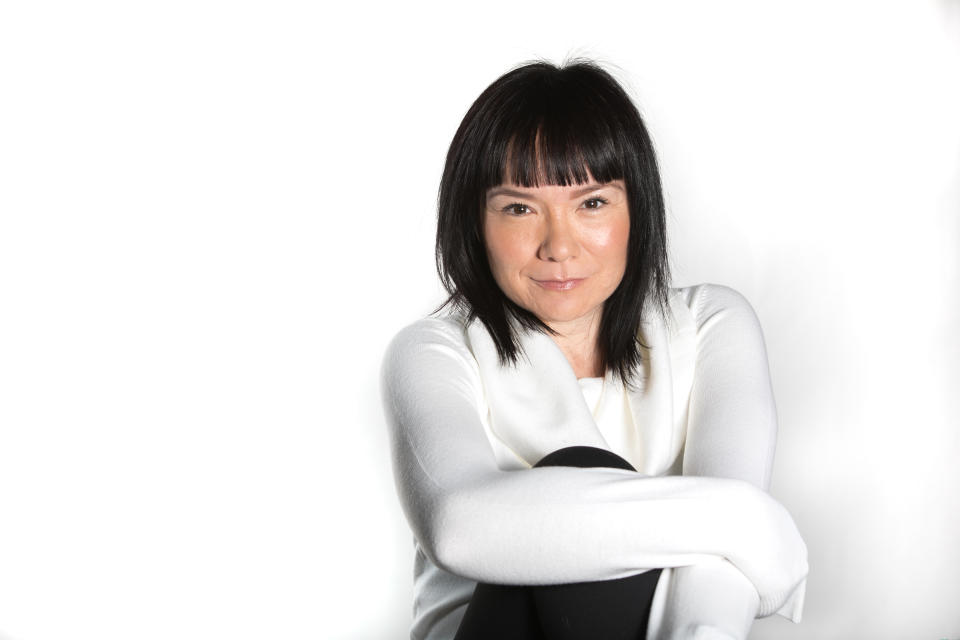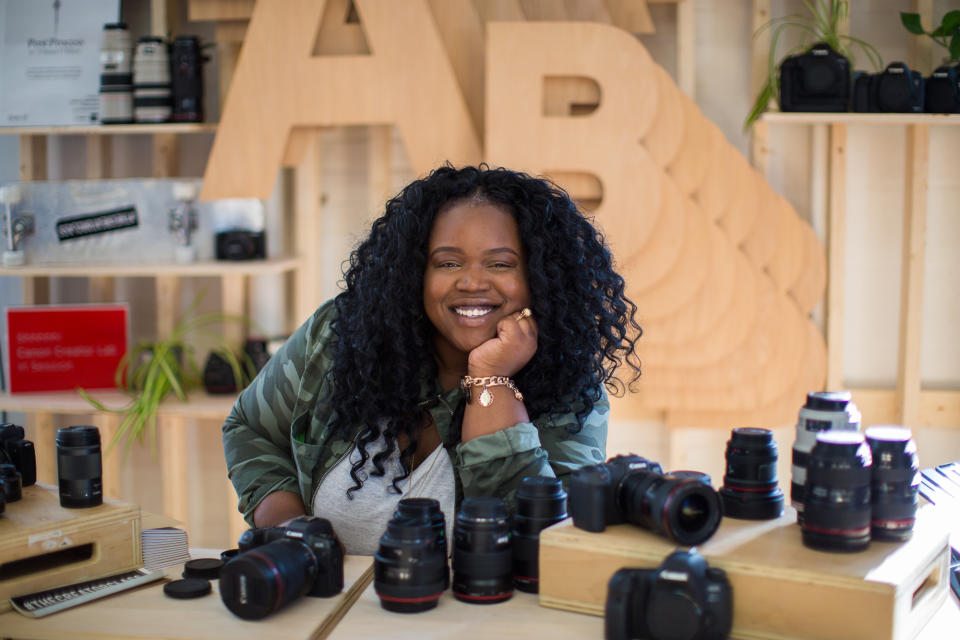'You tend to believe and accept that you're invisible:' Three Canadian women pushing for more diverse, inclusive filmmaking
The 2020 Toronto International Film Festival (TIFF) may be coming to an end, but Canadian women in film and television are continuing to speak up about the importance of diverse, inclusive and representative filmmaking in Canada and beyond.
“I think we all know that when you don't see yourself, and your stories and your community, reflected in the media you consume, then you tend to believe and accept that you're invisible,” actor and filmmaker Jennifer Podemski (Cardinal, Degrassi: The Next Generation, The Other Side) told Yahoo Canada. “An audience doesn't really think of anything outside of their own perception of what they're viewing or consuming until you tell them to think about something else.”
Anyone who scored tickets for either in-person or virtual film experiences at this year’s TIFF saw women like Podemski, V.T. Nayani and Sasha Leigh Henry share stories of “pushing their way into the room” in the film industry through RBC’s Women in Film series, which plays ahead of each movie at the festival.
“The true testament to the greatest accomplishment would be when we don't need these kinds of campaigns anymore, that it’s just normal,” Podemski said. “If it's playing before a movie, let's say TIFF, then it's going to shift the audience perspective into a place where they're now a little bit more open to...being an active witness to those portrayals we're talking about.”

Henry, a writer, director, and producer who worked on Black Bodies, which premiered at the Toronto festival, said having the support of major players like RBC and TIFF is important to “bolster” the actions of women in the film industry.
“Unfortunately, often people on the margins shouting outwards [doesn’t] always carry the weight that we want it to,” she said. “[It’s] telling the world that it matters, it further legitimizes it.”
Director, producer, and writer Nayani said it is programs and opportunities like this that are able to give filmmakers, producers, writer and actors, especially women and racialized women in particular, a platform “where people get to know our name.”
“People start to pay attention,” she said. “We're...trying to kind of climb to a place where people recognize us and honour the work, even though we've been doing it just as long as counterparts that are men.”

‘We struggle just like any other place’
In terms of Canada’s film industry, Nayani explained that there are federal, provincial and municipal government supports that are missing in other countries, through groups like the National Film Board and Telefilm, but working with those establishments is “not without their challenges.”
“We struggle just like any other place,” she said. “Especially for women and for Black, Indigenous, other people of colour, for...LGBTQ and disability communities.”
“You hold so much power and...the decision-making really needs to be equitable and the...community of film needs to be involved, and be able to have a say, especially when a lot of it is public dollars.”
Henry described the opportunities for women, particularly racialized women, in the film and television industry as “evolving quite slowly” and that there is a “large layer” of the industry that is “disconnected” to the urgency behind the need for better representation, both in front of and behind the camera.
In Canada in particular, she stressed that television series like Kim’s Convenience, Transplant and Baroness von Sketch are “bigger achievements” with their approach to more diverse or women-led stories, but Black women are still “very much missing” from the Canadian media landscape.
“What I hope we're starting to see is that Canadian content can stand on its own, it doesn't always need to play the smaller brother to U.S. content or be echoes of that,” she said. “We really...[should be] trying to explore more of what we can do to be uniquely Canadian and have that stamp mean something that we're all proud of to stand behind.”
Podemski said she has seen a “surge” in access and opportunities for women in the film industry, including characters on screen, but added that women have come out of this “diversity box.”
“Let's have a discussion about diversity and it's really just women being considered diverse,” she explained. “That's how far behind we were a couple years ago.”
“I think things have changed but again, so much more change is needed because the fact that we're still talking about it and celebrating it as if it's such a huge accomplishment is an indication that there's a lot more work to be done.”

Earlier this week, Podemski announced the anticipated 2021 launch of the Shine Network, an online platform that will act as a cinema space and talent incubator for Indigenous women.
“I've been doing this for 30 years and I definitely have come to a place where I'm exhausted,” she said. “I think that there is a huge problem, and we're looking at the statistics that tell us that Indigenous women are the most underrepresented and underfunded segment of the Canadian industry.”
“I want the Shine Network to be a platform that reminds Indigenous women that they are not invisible, that they matter and at least provide a space where we can come together to offer those stories and perspectives to other Indigenous women and all Canadians.”

‘I don't always want to talk about social justice’
Nayani’s upcoming film, This Place, supports her commitment to filmmaking that represents Black, Indigenous other people of colour in a coming-of-age story that’s focused on community.
“I also want to tell stories of celebration, I don't always want to talk about social justice and the issues that we're facing,” she said. “I want to see a rom com, I want to see something lighter.”
“I think people are always coming of age and I want to see the stories of BIPOC communities and individuals coming-of-age at every stage in their life... It goes a long way to...have that lens on our lives in multiple ways.”
Nayani said that it is the support of her personal “crew” that has helped her become better at her craft, and feel supported and valued throughout her career.
Henry has been working hard to be a part of the “evolution” of diverse, inclusive and representative opportunities for people in the film industry.
“As a director, the most opportunities you get are the directing opportunities you create for yourself,” she said.
The filmmaker identified local community and grassroots organizations assisted her with being able to create these opportunities for herself and others.
“The biggest legs up I've ever received have come from the smallest organizations with the least amount of resources,” Henry said.
Her very first short film was made with the support of ArtReach, a sub-grant under Toronto Arts Council. Henry said it specifically targeted people of colour that had an art practice and wanted to evolve their work.
“My introduction into the industry in that way made it seem all possible to me very early on because it was working with people that had so little resources, but we're doing so much already,” she explained. “It was like...well, what am I gonna complain about if this is what we're able to do here?”
The Toronto International Film Festival (TIFF) takes place from Sept. 10 to Sept. 19. Information on screenings and tickets at tiff.net.

 Yahoo Finance
Yahoo Finance 